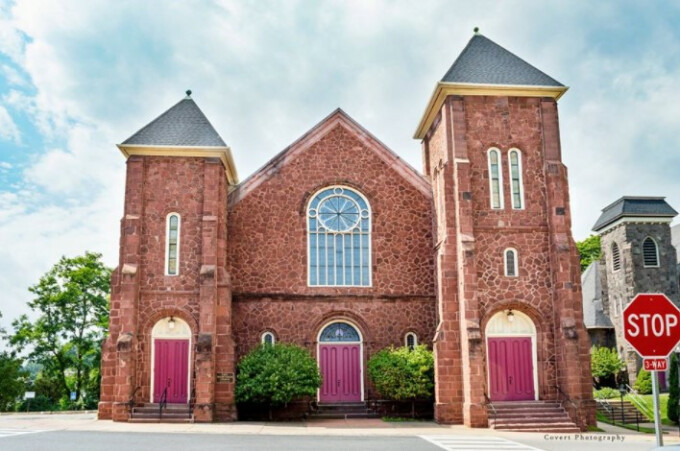Bellefonte Update - September

2023
BY OWEN HUGHES, Associate Pastor, Oakwood Presbyterian Church
First, I want to apologize for taking so long to give an update on Bellefonte Presbyterian Church, affectionately known as BPC. The last few months have been so full of summer activities, new church ministry kick-offs, and expanding current ministries.
At the recent Oakwood Congregational Meeting, Conal and I presented "BPC by the Numbers". Here are some exciting statistics that show what God is doing at BPC.
75 – That is about how many men, women, and children were sent by Oakwood to plant this church in Bellefonte. The vision is that we are loved people, placed by God, to be a blessing in Bellefonte and the surrounding communities. We carry out the vision by seeking ways to bless those around us because we have been blessed with the Good News of Jesus.
140 – That is about how many people are currently involved in BPC! This means 65 people from Bellefonte and the surrounding communities have joined the work at BPC. Some of them come from other churches, but most are either “de-churched” (used to go to church but don’t anymore) or “unchurched” (they have not grown up in the church).
4 to 7 – In the spring we launched the church with 4 small groups. This Fall we launched 3 more (2 in State College and 1 more in Bellefonte). There are about 80 people in small groups, so you can pray that more folks will join our small groups since that is integral to the life and health of this church plant.
8 – That is how many Sunday School teachers we have.
36 – That is how many children we had on our first Sunday of Sunday School! We have grades pre-k to 6th covered, and Lydia Kroeker did a fantastic job setting it all up, Kris Carr and her team of painters got all the rooms ready for this ministry. I loved watching the church come together for this, it truly was a blessing.
14 – That is how many workdays we have had since we bought the building last May. We will have 3 or 4 more this year.
22 – On average that is how many people we have come out for those workdays.
1200 – That is how many volunteer hours we estimate have been given to fixing up that church.
8 – That is how many tons of trash we threw out of that trash. We also donated a lot to Centre Peace and Goodwill.
25 – That is how many gallons of paint have been put on the walls in that church. As Conal said, “Now the church is just a little bit smaller!”.
$150,000 – That is how much our new roof cost! And we have already paid for it! Praise the Lord that through YOUR generosity we were able to cover that cost, which is a huge relief as we seek to restore the building.
But I think the number that is most important, that tells the best story, and that keeps me going is 1.
Back in March 2022 when it looked like we were going to move forward with this church plant, I started to pray for 1. 1 person to come to know the Lord in our first year. 1 person that God would call from darkness into light, that He would save by the power of His grace, and would allow this little church to see that our God is Mighty to Save.
On October 1st BPC will have their first believer baptism. Colin Egolf will be the first adult to be baptized at BPC. If it cost all the time, money, sweat, and tears just for this one soul to be saved, it was all worth it.
Colin is a single father, so I will be baptizing his 2 little boys, Landen and Micah, as well. My friends, this is why we do what we do. This is why you sent us to Bellefonte. This is why we sacrificially give of time, talents, and treasure. This is why we will keep planting this church by preaching the Gospel, loving the lost, and being a people who know they are loved, placed, and blessed.
I want to invite you to BPC and visit us. It is a huge encouragement to the people, especially those who came from Oakwood when they see you.
I also want you all to know how much I am personally grateful for your generosity, prayers, and support. I miss seeing you, I pray for you, and as a church, we pray for you every Sunday.
Know that you are loved in Bellefonte!
All our love,
Pastor Owen (for BPC)
The pictures below are of a service opportunity we did by helping the town of Bellefonte with their Children’s Craft Fair.
There are also pictures of Sunday School and the new roof going on!






